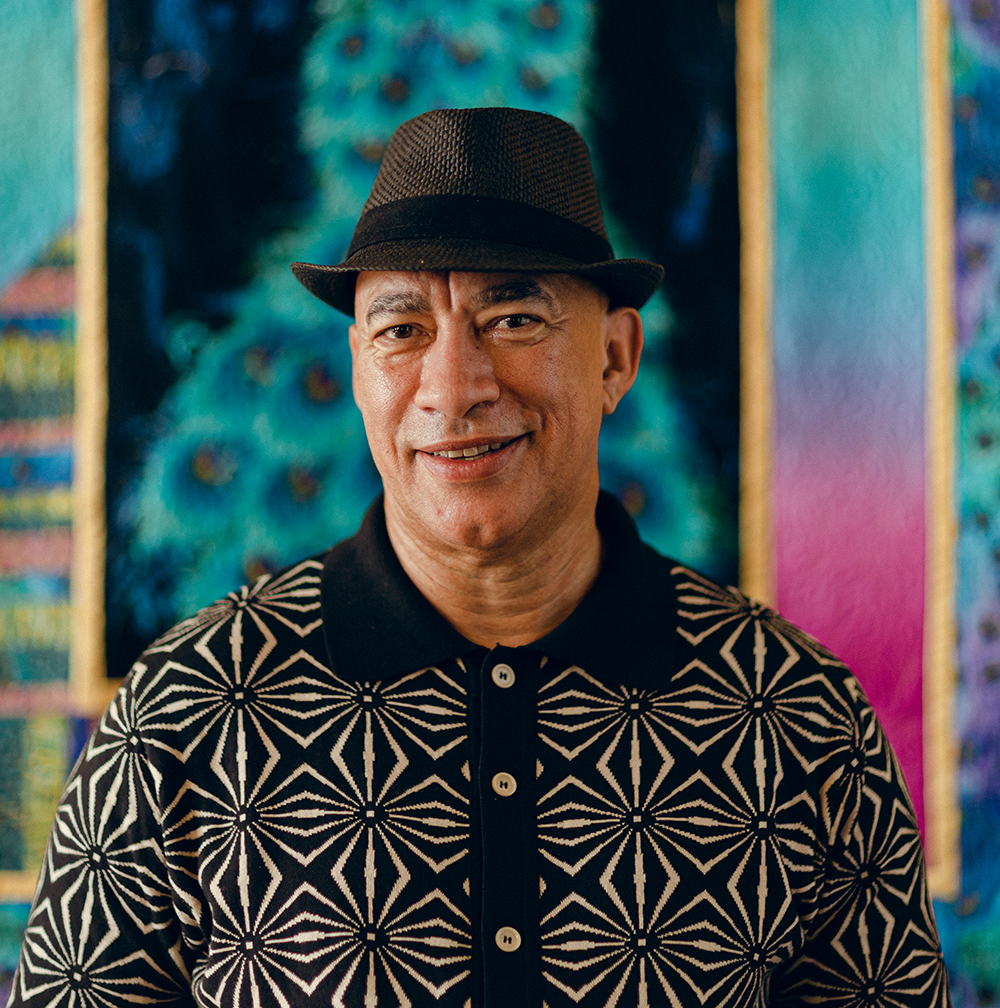Cyrus Cassells Wins Jackson Poetry Prize
Cyrus Cassells was traveling in Buenos Aires in March when he received a call from Poets & Writers telling him he had been selected as this year’s winner of the Jackson Poetry Prize. “I felt deeply honored when I got the surprising, incredible news,” he recalls.
Cyrus Cassells (Credit: Eyoel Kahssay)
Awarded annually by Poets & Writers to an American poet of exceptional talent, the Jackson Poetry Prize was established in 2006 with a gift from the Liana Foundation and is named for the John and Susan Jackson family. Over the years the amount of the award has grown from $50,000 to $100,000, making it one of the most generous prizes bestowed upon a U.S. poet. As the nineteenth poet to receive the honor, Cassells joins a distinguished roster of past recipients that includes Elizabeth Alexander, Henri Cole, Joy Harjo, Fady Joudah, Sandra Lim, Carl Phillips, Claudia Rankine, and Sonia Sanchez.
There is no application process; poets are nominated by a group of peers who remain anonymous, and the winner is selected by a panel of esteemed judges. James Richardson, Patricia Spears Jones, and Chase Twichell judged the 2025 prize. (Both Richardson and Spears Jones are past recipients of the award.) In selecting Cassells as this year’s winner, the judges issued the following citation:
Cyrus Cassells is the most cosmopolitan of poets. His concerns and concepts range over both history and place—from the courage of Black students integrating Little Rock’s Central High to memories of Holocaust survivors and discovering the power of duende in the Catalan poets. Cassells is an African American poet at home in a larger world, observing political violence and sensuous experience with deep humanity. In a Cassells poem, brutality can be conjured with formal elegance, and an erotic encounter can leave a scar of sadness. Painterly, precise, simultaneously strange and utterly familiar, his imagery is indelible. His language is inventive and delicate, jolting the reader by pairing words that seem never before to have been used in the same line: “coal-dark and stillborn grapes,” “the choir of cliffs,” “a hurrah / of wheeling blackbirds,” “premonitory wheat.” In a world that is increasingly unstable, the brave compassion of these poems, both profound and hard won, is a rare and precious thing. They’re intimate with pain, yes, with betrayal, racism, and cruelty, and they also show us how to recognize and protect the glimmers of hope that survive.
Although Cassells is not one to dwell on how his poetry is received or interpreted—“I just soldier on, a by-product, I suppose, of being a military brat”—the judges’ citation has given him an opportunity to consider what is distinctive and dynamic about his work. “Commentary from astute readers and critics who matter to me, including my own family, [is] remarkably in concert with what the judges highlighted,” he says.
Cassells is the author of eleven books of poetry, including Everything in Life Is Resurrection: Selected Poems, 1982–2022 (TCU Press, 2025) and Is There Room for Another Horse on Your Horse Ranch? (Four Way Books, 2024). His first poetry collection, The Mud Actor (Henry Holt, 1982), was selected by Al Young as a winner of the 1981 National Poetry Series competition, and he has since received numerous honors including a Guggenheim fellowship, a Lambda Literary Award, a Lannan Literary Award, two grants from the National Endowment for the Arts, and the Poetry Society of America’s William Carlos Williams Award. He is also a noted translator of Catalan poetry. Based in Austin, Texas, Cassells served as Texas Poet Laureate in 2021–2022 and is a Regents’ and University Distinguished Professor of English at Texas State University.
“I’ve been consistently lucky over four decades,” Cassells says, “to have received literary awards at opportune junctures when the prize recognitions and fellowships kicked me up to a new level of creativity and truly enhanced my overall commitment to poetry.” He plans to use a portion of the Jackson Prize funds to support research for two novellas that trace networks of the Underground Railroad—one in Boston’s Beacon Hill neighborhood, the other in Jackson County, Ohio, where his great-grandfather was born.
He’s also currently in the home stretch of completing “The Going of the Inland Soul to Sea,” a historical novel that takes its title from Emily Dickinson, in which poetry figures prominently, and he’s well into his twelfth book of poems, “A Poet Is Cousin to Life Itself,” inspired by twentieth-century Italian literature and cinema.
Amid a busy travel schedule that will take him to Rome, Prague, and Montreal in the coming months, Cassells will stop in New York City on September 30 for a reading sponsored by Poets & Writers to celebrate his winning the Jackson Prize. The event will take place at the Greene Space and will also be livestreamed. For more information, visit pw.org/JacksonPrize.







